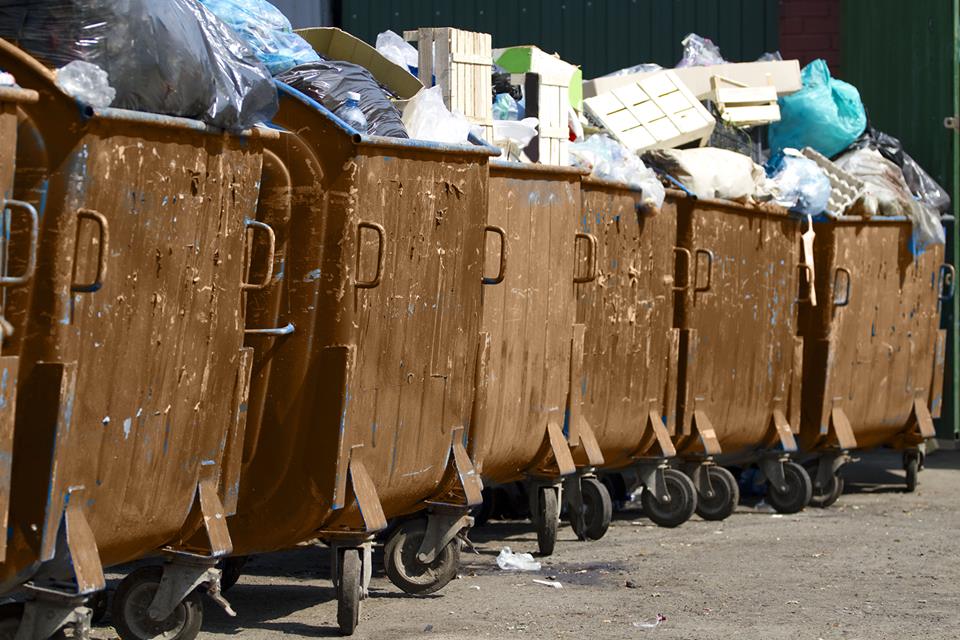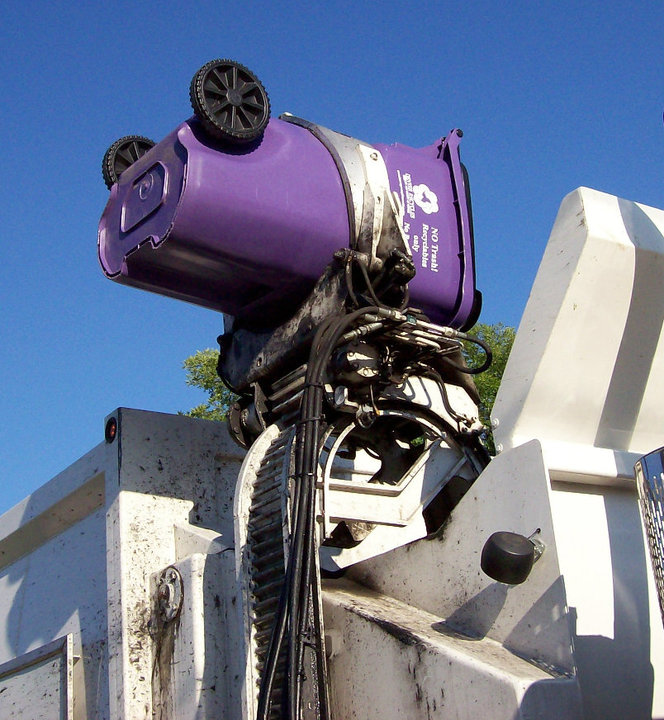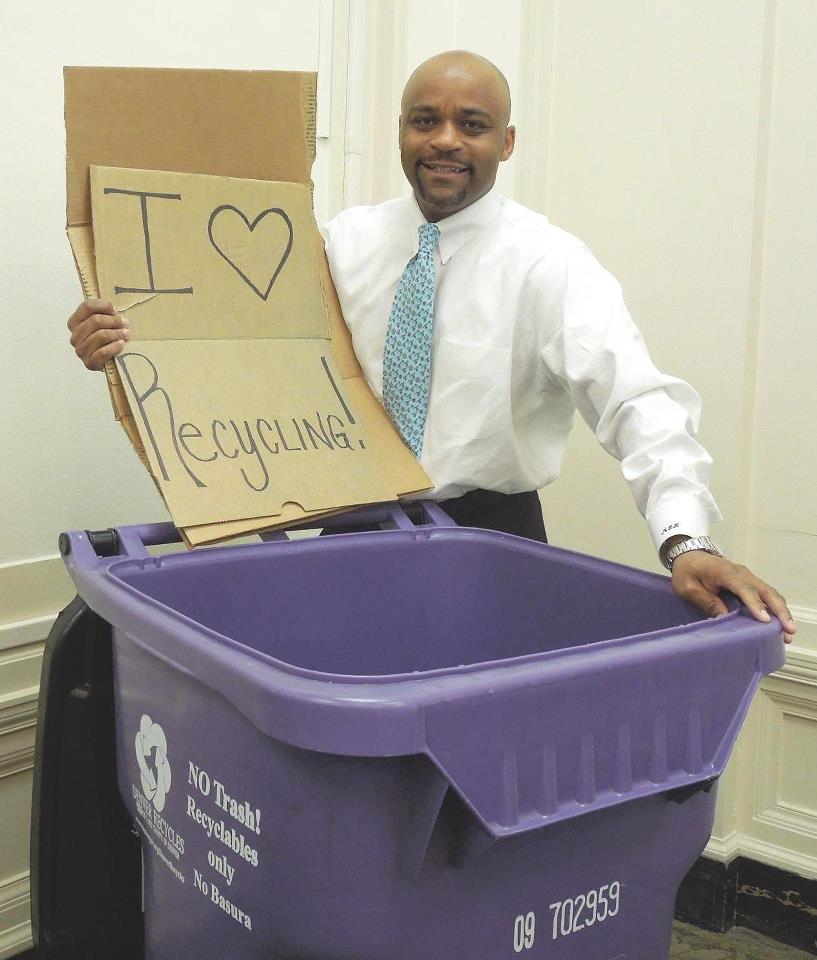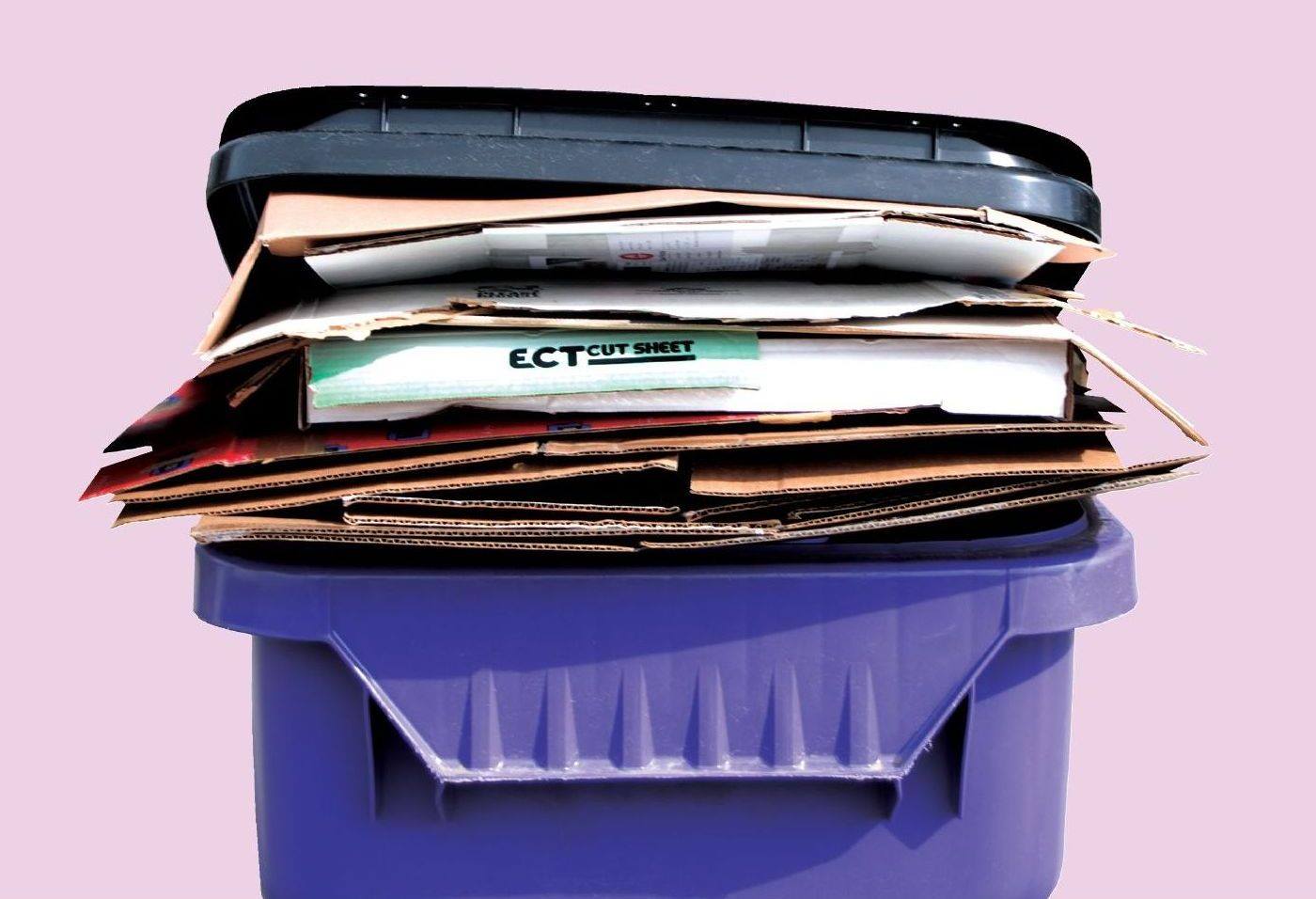Denver is usually recognized as a place that supports green living and environmentally-friendly practices, but a recent report by the Colorado Public Interest Research Group (CoPIRG) and Eco-Cycle exposes the city as “abysmal” at recycling and composting. With a recycling rate of 18 percent (of all waste) Denver ranks below other cities in Colorado as well as Washington D.C., Phoenix, Arizona, Milwaukee, Wisconsin and San Antonio, Texas, among others. Which means that Denver’s reputation as a sustainable place is in danger if certain steps are not taken. And the report insists that in order to improve the overall recycling rate, not only will residents need to pay more attention to how and what they recycle, the city will have to take the initiative more seriously.

Why Denver Sucks at Recycling
When recycling is more difficult than taking out the trash it should be no surprise that recycling is overlooked in favor of just throwing it all “out.” On a five-year average, the Front Range missed out on $218 million worth of recyclable materials because of the flaws in their system. A system that —despite the low rate— generates $8.7 billion for the Colorado economy and could contribute even more if it were expanded. That means that recycling is not only good for the environment, it’s good for those intangible structures of economy that so many people care about more. Additionally, according to the Colorado Department of Public Health and Environment, diverting recyclable materials from landfills is one of our only options when we look to the future of dealing with solid waste. The city is the first to blame in this messy situation for three main reasons: inaccessibility of recycling and compost services to all residents, not requiring businesses to recycle and creating financial disincentives that encourage more trash and less recycling.
Denver currently does not require that apartment complexes with seven apartments or more provide recycling services to their residents which results in a large portion of the population having no choice but to throw away recyclables or drive them to a drop-off center themselves. These same apartment complexes usually choose dumpsters over carts, which tends to discourage residents from sorting through trash for other reusable options—like giving things to a thrift store or consignment shop.
Single-family homes have better rates but still fall short of the national average because the bins are only given upon request, leading to at least one in five homes not recycling. The city has a goal to provide all single-family homes with bins by 2018, a goal that should be closely monitored and encouraged by residents to come to fruition.

Another reason that Denver lags so far behind other cities in reducing waste is that they charge for compost services while keeping trash collection free. According to the report, “current policies are actually making it harder for people and businesses to support sustainability by reducing waste” because there is no incentive to sort recycling and pay for compost if you can throw away as much as you want without extra charge. They suggest that Denver implement a system more similar to how they charge for other utilities— that is, the more you use (or produce, in the case of waste) the more you pay.
How You Can Help
If you already have recycling bins the best thing you can do is ensure that your recyclables fulfill the necessary requirements. What most people do not realize is that one unacceptable piece of recycling will lead to your entire bin being trashed. It may seem like a tedious task to clean and prepare your recycling, but actually it is a small effort that produces big results down the line. The biggest no-no’s are:
- plastic bags
- styrofoam of any kind
- waxed cardboard
- greasy cardboard (from pizza boxes)
- lids or screw-tops
Also, by washing out any container which carried food, drinks, shampoos, etc., not only will your recyclables actually be recycled, your recycle bin won’t smell or look nasty.
If you live in a single-family home that does not currently have a recycling pick-up, contact Denver Recycles or call 720-913-1311 to have a recycle bin assigned to your house.
If you live in an apartment complex without recycling services, contact your landlord. For more persuasive power, you might try to garner support from other residents in your apartment building. If your apartment building already provides recycling services, post this guide for acceptable and unacceptable materials to ensure it is actually recycled.
Perhaps most importantly, residents need to demand that recycling and composting services be improved by contacting their city council members and Mayor Hancock. It’s an issue that touches on many different areas other than simply recycling. By reducing and reusing our waste, we can rely less heavily on raw materials, lower our energy consumption drastically, improve our economy and save land that may be used as a dump for other purposes that are essential to our survival.

Read the full report by CoPIRG and Eco-Cycle here.






